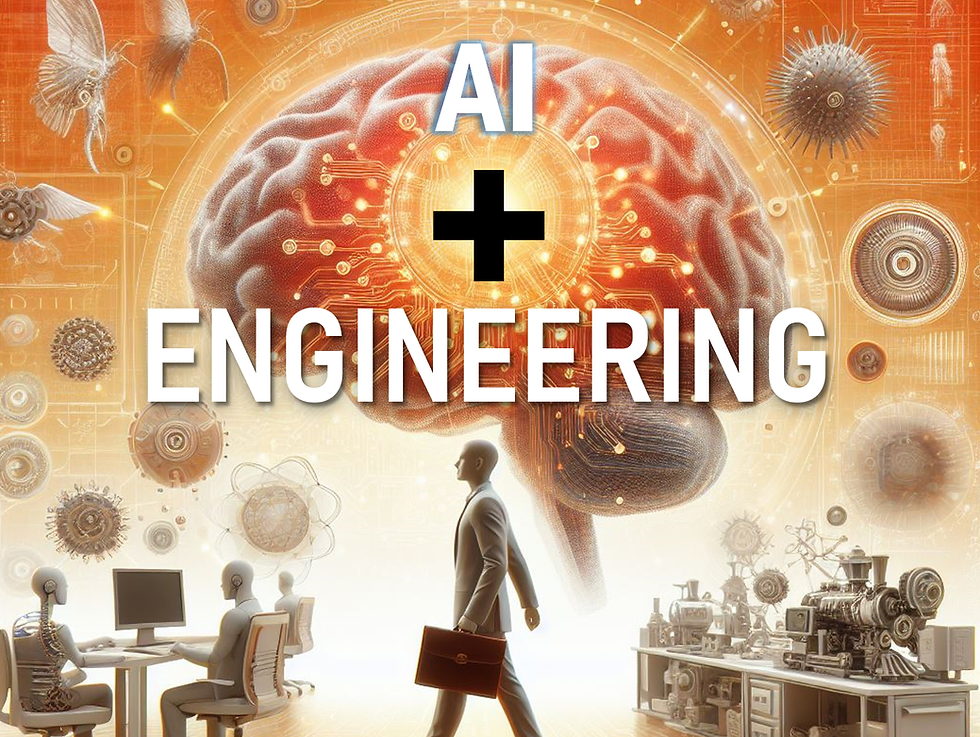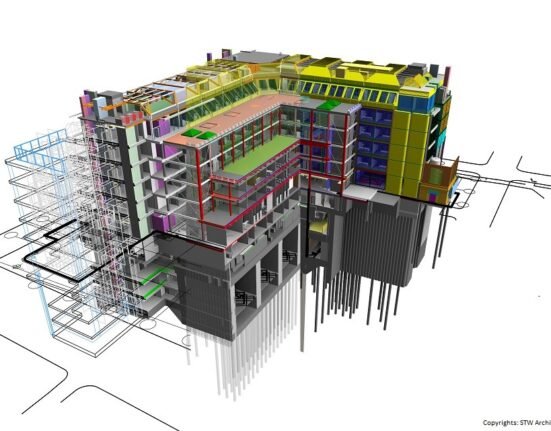The engineering industry is experiencing an unprecedented transformation, driven by artificial intelligence (AI) and machine learning. What was once a field dominated by manual calculations, repetitive tasks, and trial-and-error problem-solving has now entered a new era of automation, data-driven insights, and intelligent decision-making. Engineers across different disciplines, from civil and mechanical to electrical and software engineering, are witnessing AI revolutionizing their roles, making them more efficient, innovative, and precise.
Despite concerns that AI may replace traditional engineering jobs, the reality is quite different. AI is not eliminating engineers; rather, it is augmenting their capabilities, enabling them to tackle complex challenges faster and more accurately than ever before. Engineers who embrace AI-driven technologies are finding new career opportunities, higher efficiency in workflows, and increased competitiveness in the global market.
This article explores how AI is reshaping engineering jobs, creating new career paths, and redefining the skills required to thrive in the AI-driven future. Whether you are an experienced engineer, a project manager, a novice, or someone considering a career in engineering, understanding AI’s impact on the industry is crucial for staying ahead.
The Evolution of Engineering in the AI Era
Engineering has always been about innovation, problem-solving, and improving efficiency. However, AI is taking these principles to new heights. Traditionally, engineers relied on manual computations, physical testing, and human intuition to design, analyze, and optimize systems. While these methods have been effective, they often required extensive time, resources, and human effort. AI is changing this dynamic by introducing automated solutions that streamline these processes, reduce errors, and enhance accuracy.
For example, in civil and structural engineering, AI-powered software can analyze large sets of data to predict the performance of buildings and infrastructure under various conditions. AI-driven predictive models can assess risks, optimize material usage, and detect potential structural failures long before they occur. This not only improves safety but also significantly reduces costs and construction time.
In mechanical and aerospace engineering, AI enhances Computer-Aided Design (CAD) tools, allowing engineers to generate optimized prototypes quickly. AI-powered simulations can predict how materials will react to stress, heat, and other external factors, leading to better product designs and reduced reliance on costly physical testing.
Electrical and electronics engineers are also benefiting from AI advancements. Intelligent algorithms can optimize circuit designs, detect faults in electrical grids, and automate system diagnostics. AI-powered sensors and smart grids are improving energy distribution, reducing power outages, and enhancing efficiency in renewable energy production.
Even in software and robotics engineering, AI is playing a transformative role. Engineers are developing intelligent robots that can perform tasks autonomously, improving efficiency in manufacturing, logistics, healthcare, and even construction. AI-driven robotic process automation (RPA) is reducing the need for repetitive manual tasks, allowing engineers to focus on high-value strategic work.
The Changing Nature of Engineering Jobs
AI is reshaping the job market for engineers, not by replacing them but by changing their responsibilities and required skill sets. Engineers who once spent hours performing calculations or conducting repetitive tests are now shifting their focus to AI-driven analysis, automation, and optimization.
Data-driven decision-making has become the norm. AI-powered analytics help engineers make better, faster, and more informed choices based on real-time data and predictive models. AI-driven insights allow engineers to detect potential failures before they happen, improving efficiency and safety across industries.
As a result, new career paths are emerging. AI is creating demand for engineering professionals with expertise in machine learning, AI programming, and automation. Companies across industries are seeking engineers who can develop, implement, and manage AI-powered systems. Engineers who upskill in AI and automation are positioning themselves as leaders in their fields, unlocking lucrative job opportunities in AI-driven industries.
Even within traditional engineering roles, AI is eliminating mundane and repetitive tasks, allowing engineers to focus on high-level strategic work. AI-powered digital twins—virtual replicas of physical systems—are enabling engineers to simulate and optimize projects before they are built, reducing costs and improving efficiency.
New Career Opportunities in AI-Driven Engineering
The demand for AI-skilled engineers is growing at an exponential rate. Companies are investing heavily in AI technologies, and they need professionals who can develop and manage AI-driven solutions. Some of the most exciting AI-driven career opportunities in engineering include:
- AI-Powered Robotics Engineering: Engineers are developing intelligent robotic systems for construction, manufacturing, healthcare, and logistics. AI-powered robots are automating tasks that were once labor-intensive, from assembling products in factories to assisting surgeons in operating rooms.
- AI in Renewable Energy and Smart Grids: Engineers are working on AI-driven energy management systems that optimize electricity distribution, predict power demand, and enhance the efficiency of solar and wind farms. AI is playing a crucial role in reducing carbon footprints and advancing the transition to sustainable energy.
- Autonomous Vehicles and Transportation Engineering: AI is revolutionizing the automotive industry, with engineers developing self-driving cars, intelligent traffic management systems, and AI-powered logistics optimization solutions. The future of transportation is being shaped by AI-driven innovations.
- AI-Driven Civil and Infrastructure Engineering: Engineers are using AI to predict infrastructure failures, optimize urban planning, and enhance the durability of roads, bridges, and buildings. AI is enabling more efficient and sustainable city development.
- AI in Engineering Project Management: AI-powered project management tools are improving efficiency in engineering projects by optimizing schedules, detecting risks, and minimizing resource wastage. Engineers with AI expertise are now playing a critical role in project execution and decision-making.
Challenges and Future Prospects of AI in Engineering
Despite its vast potential, AI integration in engineering comes with challenges. One of the primary concerns is job displacement, as AI automates certain tasks. However, rather than eliminating engineering roles, AI is transforming them. Engineers who adapt to AI-driven workflows and upskill in emerging technologies will remain indispensable.
Another challenge is the ethical and security implications of AI in engineering. AI systems must be designed responsibly to ensure transparency, fairness, and security. Engineers working with AI must consider issues such as data privacy, cybersecurity, and the ethical use of automation.
The future of engineering in the AI era will depend on interdisciplinary collaboration. Engineers will need to work closely with data scientists, AI researchers, and cybersecurity experts to develop robust, safe, and efficient AI-driven solutions. Those who bridge engineering knowledge with AI expertise will be at the forefront of the industry.
Moreover, AI is democratizing access to engineering by enabling individuals with minimal technical expertise to contribute to engineering projects. AI-powered design tools are making it easier for startups and small enterprises to innovate without requiring extensive engineering resources.
Embrace the AI Revolution in Engineering
The rise of AI is not a threat—it is an opportunity. Engineers who embrace AI-driven technologies, develop new skills, and adapt to the evolving landscape will find themselves in high demand across industries. AI is not replacing engineers; it is empowering them to work smarter, faster, and more efficiently than ever before.
Stay ahead of the curve and gain exclusive insights into the latest advancements in engineering, construction, energy, and cryptocurrency. Join our community on WhatsApp or Telegram for real-time updates. Have a report or article to share? Send it to report@epci.ng. Follow us on X (Twitter), Instagram, LinkedIn, and Facebook for more industry insights. The future of engineering is AI-driven—are you ready?







Leave feedback about this